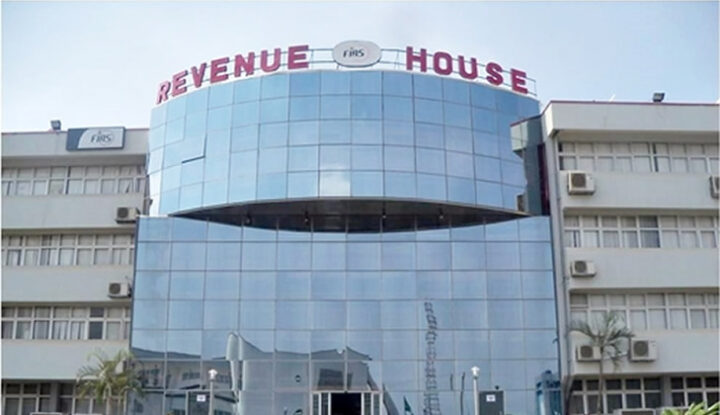The Federal Inland Revenue Service (FIRS) has achieved a historic rise in tax revenue, collecting a total of ₦47.39 trillion over a two-year period. This remarkable growth, attributed to ongoing reforms, advanced digital systems, and improved compliance measures, underscores Nigeria’s expanding fiscal capacity and efforts to diversify revenue sources beyond oil.
According to recent data, FIRS exceeded its targets, recording about 115 percent performance in its overall collection drive. Between October 2023 and September 2025, the agency reported that its collection drive remained strong, with ₦22.59 trillion generated in just the first nine months of 2025 alone. This represents a significant leap in Nigeria’s tax administration and showcases the impact of efficiency-focused reforms.

One of the defining features of this achievement is the dominance of non-oil tax revenue, which now constitutes around 76 percent of the total collection. Oil taxes accounted for ₦5.29 trillion, meeting nearly 98 percent of the agency’s target, while non-oil taxes brought in ₦17.3 trillion, surpassing projections by 128 percent. This trend reflects Nigeria’s growing reliance on domestic tax sources and reduced dependence on volatile oil markets.
Among the best-performing tax segments, non-import value-added tax (VAT) recorded 137 percent of its target, while import VAT achieved 131 percent. These gains highlight the success of compliance monitoring and improved tax administration processes, which have closed gaps in trade-related and domestic revenue collections.
The FIRS leadership, under its executive chairman, credited the significant progress to the agency’s extensive modernization drive. The digital transformation initiatives, including e-invoicing systems, taxpayer integration platforms, and data analytics tools, have been instrumental in blocking revenue leakages and ensuring transparency. These innovations also made it easier for taxpayers to meet their obligations, boosting voluntary compliance.
One notable innovation has been the introduction of the FIRS USSD 829# service, which allows taxpayers to easily retrieve their Tax Identification Numbers (TIN), confirm tax clearance status, verify tax rates, and locate nearby tax offices using their mobile phones. This mobile service reflects FIRS’s commitment to simplifying tax processes and ensuring accessibility for all categories of taxpayers.
The agency’s strategic plan also involves enhanced collaboration with other government institutions to improve tax administration and expand the tax net. The FIRS is introducing “tax clinics” across the country, designed to support small and medium enterprises (SMEs) and informal sector operators. These clinics will provide filing assistance, dispute resolution, and education on compliance procedures, ensuring that tax processes are better understood at the grassroots level.
FIRS has also strengthened its global partnerships. It has engaged in mutual agreements and training programs with international revenue authorities to build capacity and adopt global best practices. Countries such as France, Belgium, and the Netherlands have been part of recent collaborations that aim to modernize Nigeria’s tax administration.
The ₦47.39 trillion milestone, experts say, marks a turning point for Nigeria’s fiscal strategy. It reflects not only better collection systems but also a growing culture of compliance among citizens and corporate bodies. Analysts believe this achievement could significantly improve the nation’s financial stability by reducing its dependence on external borrowing and providing more resources for developmental projects and social programs.
This performance comes as the agency prepares for a major institutional transformation. From January 2026, FIRS will officially transition into the Nigeria Revenue Service (NRS), with a broader mandate to collect both tax and non-tax revenues. This transition forms part of the government’s comprehensive strategy to enhance efficiency, promote fairness, and simplify tax policy implementation across all sectors.
The upcoming NRS structure is expected to consolidate the gains achieved under the current framework, while ensuring a smoother and more integrated system for revenue generation. Stakeholders, however, have cautioned that sustaining this impressive revenue growth will require consistency in policy implementation, transparent financial management, and accountability in the use of public funds.
Beyond administrative reforms, the FIRS has also intensified public sensitization campaigns, encouraging citizens and businesses to understand the importance of taxation in nation-building. The leadership has consistently emphasized that a fair and efficient tax system is essential to building the infrastructure and social services that drive economic growth.
Economic experts observe that if properly sustained, the gains recorded could enhance investor confidence and improve Nigeria’s credit ratings by international agencies. A strong and stable revenue system, they argue, is vital to reducing fiscal deficits and supporting economic diversification.
The steady performance of the FIRS demonstrates a paradigm shift in Nigeria’s revenue collection landscape. The focus on non-oil income streams, combined with the deployment of modern technology and human capacity development, has positioned the country on a more sustainable path toward financial independence.
As the transformation into the Nigeria Revenue Service draws near, expectations remain high that the reforms will deepen efficiency and accountability. The challenge for the new agency will be maintaining the current growth trajectory while adapting to evolving economic realities. If managed effectively, Nigeria’s tax system could become one of the most dynamic and digitally integrated in Africa, capable of supporting long-term economic resilience and national development.
Support InfoStride News' Credible Journalism: Only credible journalism can guarantee a fair, accountable and transparent society, including democracy and government. It involves a lot of efforts and money. We need your support. Click here to Donate
